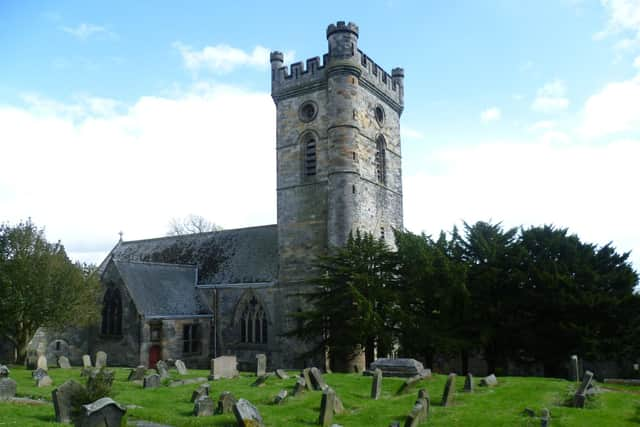Historic village speaks out over threat to 13th-century Scottish abbey as Kirk considers closures
Culross Abbey is believed to be at risk of being shed by the Church of Scotland given its lack of modern-day facilities.
Presbyteries across Scotland are working to determine which buildings are surplus to requirements, given the Kirk’s focus on modernising the way it delivers worship amid shrinking congregations, a drop in income and a cut to minister numbers.
Advertisement
Hide AdAdvertisement
Hide AdThey have been asked to consider a number of factors, including repair and maintenance costs and which churches lack facilities such as kitchens and disabled access.
Culross Abbey, reportedly built on the site of an early Christian community that included St Mungo as its members before he left to found Glasgow, is now considered at risk as part of the exercise.
Members of Culross Community Council recently met with church representatives to discuss their concerns over the future of the “sacred and special place”.
Diane MacKenzie, community council member, in a letter to the Kirk trustees following the meeting, said she understood Culross Abbey was given a Category B status in the recent assessment.
She said: “We understand this means if this decision is agreed at the upcoming Presbytery then Culross Abbey Church will either be sold, let or otherwise disposed of within the next five years.


"Culross Community Council are dismayed to hear of this decision given all the Abbey Church means to the local community. It’s 800 years of history being the very reason why the Royal Burgh of Culross was founded and why the Fife Pilgrim Way begins here.”
The abbey site features the ruins of a Cistercian monastery, which are managed by Historic Environment Scotland.
The abbey holds the vault of Sir George Bruce, an early industrialist who developed a visionary system of coal mining at the village, and his wife Margaret. A line of praying statues, which represent their eight children, stand in front of the tomb.
Advertisement
Hide AdAdvertisement
Hide AdMs MacKenzie said: "It is widely recognised as a sacred and special place and one which welcomes visitors from around the globe to understand their ancestry and view the Bruce Vault with its memorials to Sir George Bruce, his wife Margaret and the eight kneeling statues, representing the couple’s children as adults, lined up in front of the memorial.
"These are only a few of the reasons why Culross Abbey Church should continue to be open to the public, serve the Mission of the Church and not be disposed of in a way the deprives the public from its sacred meaning, benefits and history.”
The Church of Scotland, which has stressed it has no targets in place regarding building disposals, will start assessing results from presbyteries by the end of the year, it is understood.
Brian D Waller, head of policy and legislation of the General Trustees of Church of Scotland, in response to Culross Community Council, said building closures were “strictly a matter” for presbyteries, in the first instance.
He said: “Whilst each plan will require to be approved by central Church agencies, including the General Trustees, it is the Presbytery which makes the decisions, difficult as they are, with regards to the categorisation of buildings in the plan.”
Comments
Want to join the conversation? Please or to comment on this article.